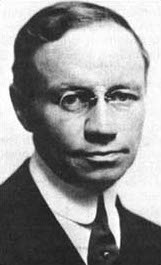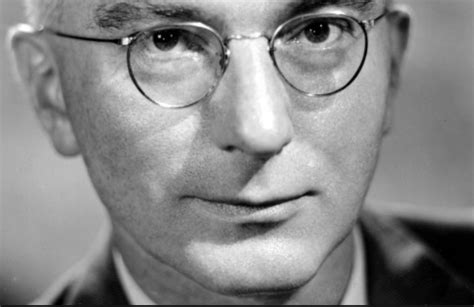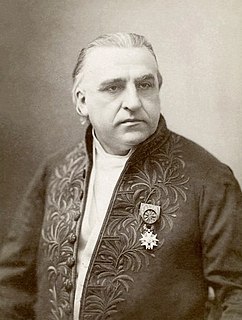A Quote by Reinhold Niebuhr
The scientific observer of the realm of nature is in a sense naturally and inevitably disinterested. At least, nothing in the natural scene can arouse his bias. Furthermore, he stands completely outside of the natural so that his mind, whatever his limitations, approximates pure mind. The observer of the realm of history cannot be disinterested in the same way, for two reasons: first, he must look at history from some locus in history; secondly, he is to a certain degree engaged in its ideological conflicts.
Related Quotes
If you're deeply engaged in an event, you're part of it. But if you're outside of it, disinterested, you are the regard that registers history. And that disinterestedness is different from objectivity. The objective view sees only the event, while the disinterested one participates as well as views by creating that link to history. It's a type of viewing that's both inside and out of the event, that brings to the viewing the capacity for human emotion, for compassion, but holds it openly. And objectivity excludes the human element, and is therefore not a point of view open to humans.
The majority of men cannot be made disinterested for life by exhortation, by religious services, by any expenditure of subsidized works, or even by grave and manifest public need. They can be made permanently unselfish only by being helped to become disinterested in their individual purposes. In the complete democracy a man must in some way be made to serve the nation in the very act of contributing to his own individual fulfillment. Not until his personal action is dictated by disinterested motives can there be any such harmony between private and public interests.
It is quite evident that a barrier must be cleared in order to escape the psychologists and enter into a realm which is not "auto-observant", where we ourselves no longer divide ourselves into observer and observed. Then the dreamer is completely dissolved in his reverie. His reverie is his silent life. It is that silent peace which the poet wants to convey to us.
The constancies and equivalences adumbrated work havoc with such settled topical blocks as myth and philosophy, natural reason and revelation, philosophy and religion, or the Orient with its cyclical time and Christianity with its linear history. And what is modem about the modem mind, one may ask, if Hegel, Comte, or Marx, in order to create an image of history that will support their ideological imperialism, still use the same techniques for distorting the reality of history as their Sumerian predecessors?
The individual man, in introspecting the fact of his own consciousness, also discovers the primordial natural fact of his freedom: his freedom to choose, his freedom to use or not use his reason about any given subject. In short, the natural fact of his "free will." He also discovers the natural fact of his mind's command over his body and its actions: that is, of his natural ownership over his self.
The merit of Marx is that he suddenly produces a qualitative change in the history of social thought. He interprets history, understands its dynamic, predicts the future, but in addition to predicting it (which would satisfy his scientific obligation), he expresses a revolutionary concept: the world must not only be interpreted, it must be transformed. Man ceases to be the slave and tool of his environment and converts himself into the architect of his own destiny.
To a person uninstructed in natural history, his country or sea-side stroll is a walk through a gallery filled with wonderful works of art, nine-tenths of which have their faces turned to the wall. Teach him something of natural history, and you place in his hands a catalogue of those which are worth turning around. Surely our innocent pleasures are not so abundant in this life, that we can afford to despise this or any other source of them.
A curiously interested observer sees a great deal, a scientifically interested observer is worthy of all honor, and anxiously interested observer sees what others do not see, but a crazy observer sees perhaps the most, his observation is more intense and more persistent, just as the senses of certain animals are sharper than those of man.






































